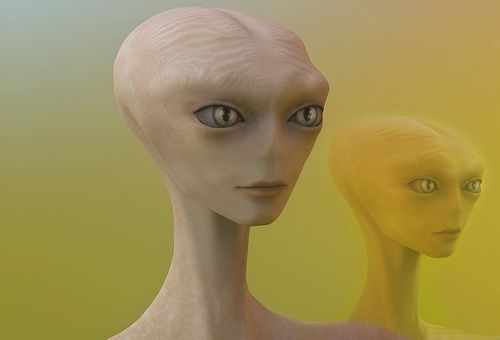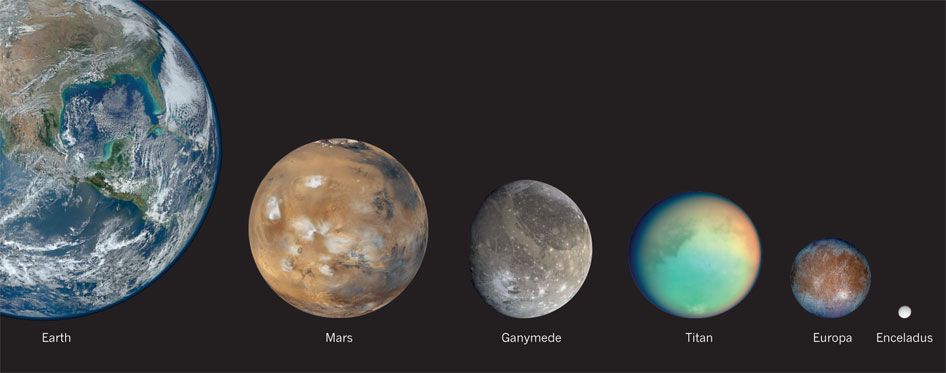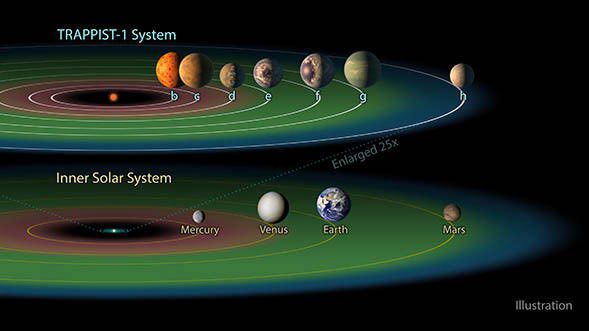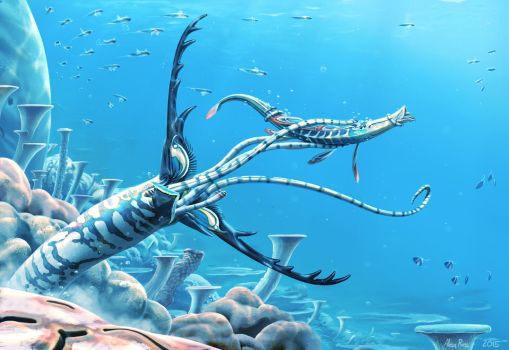Exo-biology
Exo-biology
This is also called Astrobiology. It's the study of life in the universe. In other words, astrobiologists want to know how life could originate, evolve on exo-planets, and how distributed such life would be.
Sounds like a big job.

Actually, it would require knowing biology but also astronomy, physics, chemistry, molecular biology, planetary science and geology. That's a lot of different disciplines. My take on this is that no one truly understands what alien life would be like or even how it would originate on a strange planet.

The only thing we know for sure from studying life on Earth is that it can exist in some of the most severe ecological locations on the planet. This makes astrobiologists think that life could develop on other planets as long as the chemistry is there and the environmental conditions are suitable.

The main chemical that must be present for life to orginate is water in liquid form. That's the most important requirement, but it's only for life as we know it. There could be other forms of life not based on carbon, but on silicon. I've discussed this before. It's purely theoretical.

If we assume that alien life would be carbon-based, then we could lay out the requirements for it to develop. The first is surface water, which would imply that the planet would have an atmosphere. The atmosphere might not be necessary if the planet or moon has a under-surface ocean. This would apply to moons like Enceledus and Europa.

Next on the list is the proper chemistry. This would suggest that organic chemicals are available, such as amino acids, as well as the complex chemical base units of DNA, which are the nucleotides like guanine, adenine, thymine and cytosine. We also would like to see deoxyribose, the sugar that makes up the backbone of DNA, as well as a source of the phosphate group. These would be the main ingredients for the synthesis of DNA, or at least RNA. Actually, NASA has discovered some of these chemicals on asteroids and comets.
A candidate exo-planet suitable for the emergence of life would also end up having oxygen in its atmosphere. Oxygen would be a clear marker for life because only life can form it. That's what happened on early Earth. Once the newest telescopes are launched, astronomers will be searching for oxygen in planets orbiting nearby stars. Unfortunately, the only way we'll know if life exists for sure is to go out to these planets. This will require finding the proper propulsion system to get there in reasonable times.
However, what needs to happen first is for astrobiologists to find life on Mars, and on the moons of Jupiter and Saturn. With that discovery in the bag, the search for life on exo-planets will become very exciting.
Thanks for reading.
Bạn đang đọc truyện trên: Truyen247.Pro